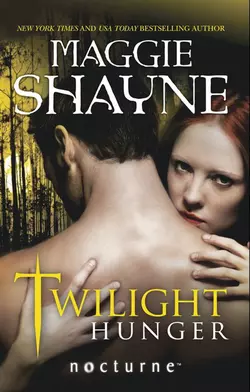Twilight Hunger

Maggie Shayne
Тип: электронная книга
Жанр: Современные любовные романы
Язык: на английском языке
Стоимость: 150.68 ₽
Статус: В продаже
Издательство: HarperCollins
Дата публикации: 16.04.2024
Отзывы: Пока нет Добавить отзыв
О книге: She revealed his secrets to the world. Now he must be her saviour… When writer Morgan uncovers old diaries in her attic, she is swept into the seductive world of Dante, a man who believed himself a vampire, providing the perfect inspiration for her stories. Now Morgan is wasting away. At night she dreams of Dante, a sensual fantasy so real she can feel her life’s blood draining from her. Almost as if he were there… And he is.But the vampire’s nightly visits are about more than just fulfilling his own desires. He is the only one who can protect Morgan from her destiny. But to save her, he must trust her. With his life. With his love. With the promise of immortality.